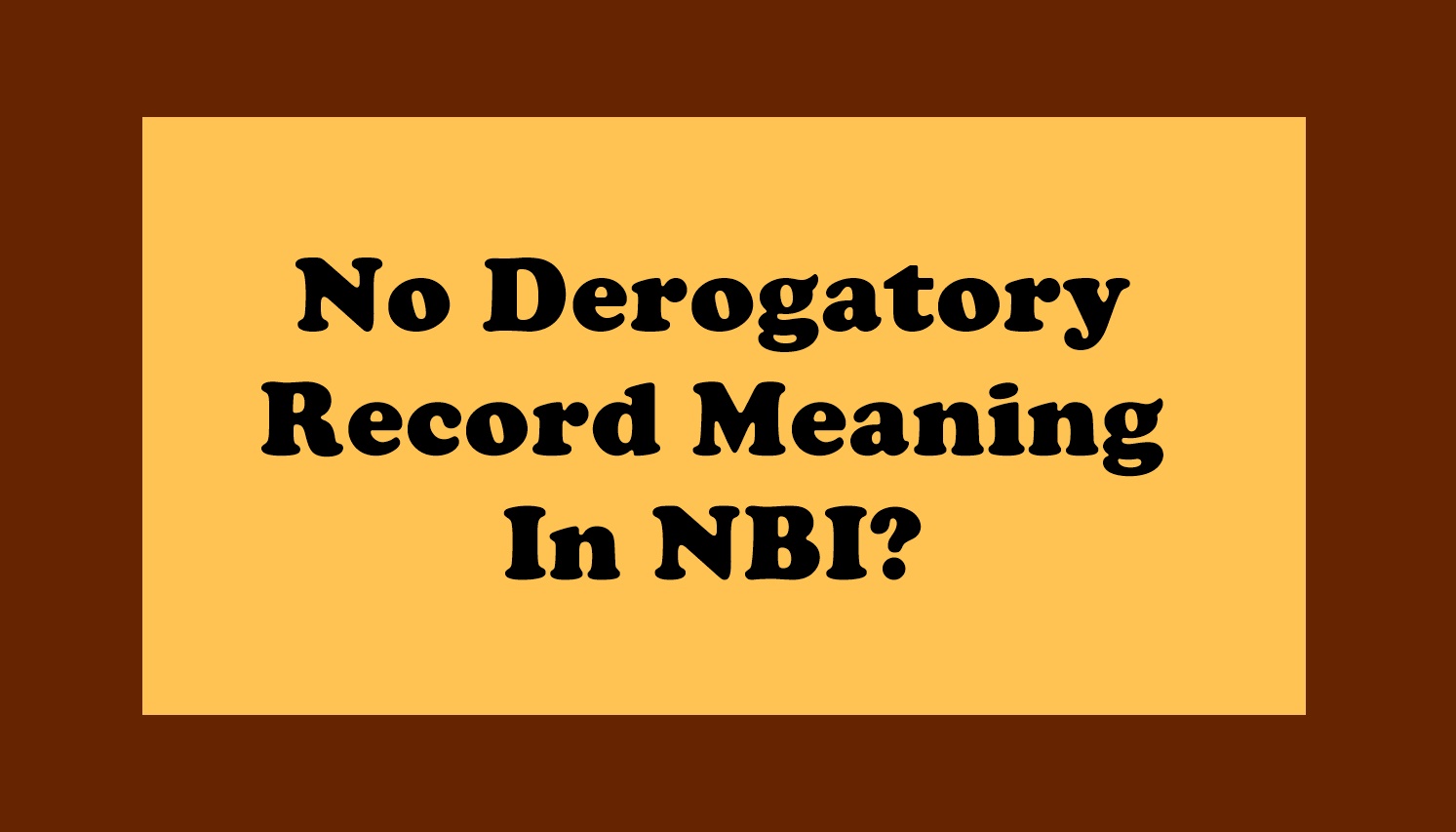When applying for an NBI (National Bureau of Investigation) clearance in the Philippines, the phrase “No Derogatory Record” is a significant indicator of an applicant’s legal and criminal background. This status is often required for job applications, visa processing, and other important transactions. Here’s what the term means and its implications.
What Does “No Derogatory Record” Indicate?
A “No Derogatory Record” status confirms that the applicant has no criminal cases or pending legal issues recorded in the NBI database. It reflects a clean history, ensuring that the individual is free from legal liabilities or criminal activities.
This term provides assurance to employers, government agencies, or other requesting parties that the individual poses no legal risks, making them eligible for employment, travel, or other processes requiring clearance.

Examples of Derogatory Records
1. Pending Criminal Cases
If your name appears in any ongoing criminal investigation or court case, it may be flagged in the NBI system. Even if you are not guilty yet, the pending status still shows up until resolved.
Examples:
-
Theft or robbery cases
-
Assault or physical injury complaints
-
Drug-related charges
2. Warrants of Arrest
If there is a standing arrest warrant issued under your name — even if you are unaware of it — the NBI will flag this as a derogatory record.
Note: Warrants don’t expire unless officially recalled by the court, so old unresolved cases may still appear.
3. Convictions
If you’ve been found guilty in court for any criminal offense, it’s part of your permanent record unless you’ve gone through a legal clearing process (e.g., expungement or pardon).
Examples:
-
Fraud or estafa
-
Homicide or serious crimes
-
Cybercrime convictions
4. Name Similarity to Someone With a Record
This is one of the most common reasons for a “NBI HIT” If your full name (or even just your first and last name) is similar or identical to someone who has a criminal record, the system may flag it.
Why? The NBI has to double-check if you are that person or not — this leads to delays, but it doesn’t mean you’re guilty.
5. Cases Already Dismissed But Not Updated in the System
Sometimes, a case may have been dismissed or resolved, but if the NBI database hasn’t been updated, it might still show up as a derogatory record.
Tip: Always keep copies of dismissal documents or clearance letters from the court.
What To Do If You Get a Derogatory
This is more serious than a “HIT” and requires proper documentation and resolution. Here’s what you need to do:
Step 1: Stay Calm and Understand the Record
-
A derogatory record does not always mean you are guilty. It could be:
-
A pending case
-
A case that was dismissed but still on record
-
An old case that needs updating in the system
-
Step 2: Proceed to the Quality Control or Legal Assistance Desk
-
An NBI legal officer will review your case.
-
You may be asked:
-
If you are aware of the case
-
To provide documentation or proof of resolution
-
To submit fingerprints or sign verification papers
-
Step 3: Submit Supporting Documents
If your record is from:
-
A dismissed or resolved case: Bring the court dismissal order or certificate of finality
-
A case that is still pending: Consult with your lawyer or public attorney
-
A wrong identity issue: Present clear ID and proof of identity to clear your name
Step 4: Wait for Legal Review
-
If your documents are complete, the NBI will:
-
Tag your record as “cleared”
-
Issue your clearance with “No Derogatory Record” (after manual update)
-
-
This process may take 5–15 working days depending on the case
The term “No Derogatory Record” reflects an individual’s compliance with the law and absence of criminal liability. By resolving any legal issues and maintaining accurate information, applicants can ensure a smooth NBI clearance process. A clean record opens doors to employment, travel, and other opportunities, making it an essential part of many official requirements.
